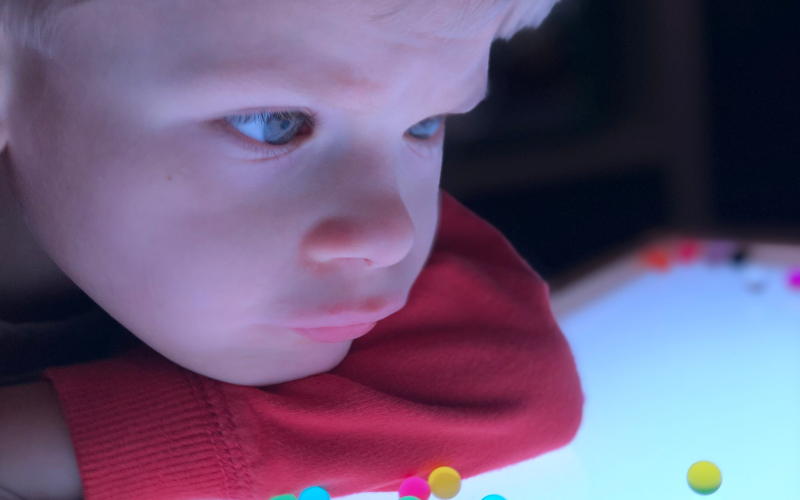For the last 5 years we haven’t stopped. We haven’t even paused.
Our son has a rare genetic condition, congenital disorder of glycosylation, that affects him in every single way.
He is, unfortunately, on the severe end of the spectrum of the disorder.
He is severely developmentally delayed; his baby brother passed him up with his motor skills when he was just 5 months old.
Our son is also nonverbal but can use a communication device to make requests.
Right now he can respond to a question with a yes or no, or make a request for simple things.
It’s not much, but it’s something.
He is tube fed and takes nothing orally. And believe me, we’ve tried and continue to try.
I am part of a social media group for our son’s condition, which I absolutely adore.
I love sharing triumphs with other families and I appreciate the amount of knowledge that is in the group.
Watching other children achieve major milestones is wonderful to see, and inspiring.
But I have to be honest, it can also be heartbreaking.
I remember back to the beginning when our son was an infant and I would see children with his same disorder crawling up the stairs at age 4, and I would think to myself that’s not so bad, we can handle that.
I would see photos of children at age 3 eating a bowl of cereal and I would mentally count the number of feeding therapy visits it would take to reach that age.
I would watch videos of children saying “mom” or “I love you” with tears streaming down my face and just imagine the joy that parent was feeling, biding my time until it came for us.
Well, here we are. Almost 6 years old and none of that has happened for us.
We have accepted the fact that our son is on the more affected side of the spectrum.
We recently had a developmental assessment and the specialist looked at us and kindly said “the report won’t be pretty.”
I think she was trying to warn us for when the time came and we read her report. We know.
We know that he’s severely delayed.
It stares us right in our faces every day with his baby brother soaring past him.
We have reworded our goals from “we’d like him to crawl” to “we’d like progress.”
Simple. Just progress.
Our son has been in physical and occupational therapy for over 5 years, and we work with him constantly at home. But sometimes being on the severe end means all of that doesn’t matter.
Sometimes it means that no matter how many hours of physical therapy we do he still may not be able to achieve the milestones we are striving for.
Even though reading those words aloud chokes me up I know it’s ok. But I would be lying if I said it didn’t sting a little when I see other children with his same subtype on the other end.
Please don’t get me wrong, I’m elated and proud of what other children are achieving but it still makes my heart ache a little.
We’ve also watched families lose their children to this disorder, and it’s such a helpless, heartbreaking place to be in.
It’s a crazy teeter totter because in those moments I want to just hold him and hug him because he’s here.
And it makes me feel horrible for even caring if he walks or talks because after all, he’s here
And in the end, severely affected or not, doesn’t really matter.
It’s not always easy to be on this end. It’s lonely. It’s not always fun to watch other children with the same disorder who are much younger pass our son up.
It’s quite sad to play the game of “when did your child sit, crawl, walk…?” when our answers are still pending. It’s heartbreaking to feel like you’ve worked harder and longer, only to fall short.
We haven’t stopped in the last 5 years.
We haven’t even paused.
Because being severe doesn’t mean never.
